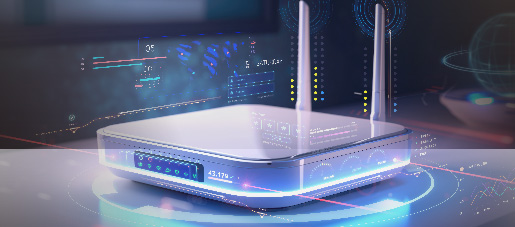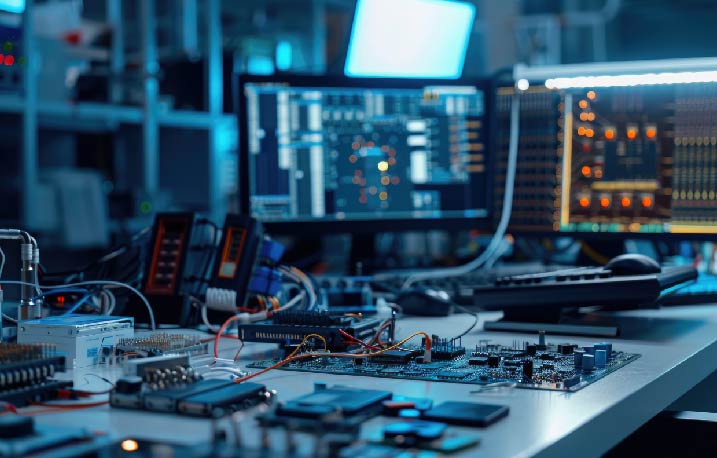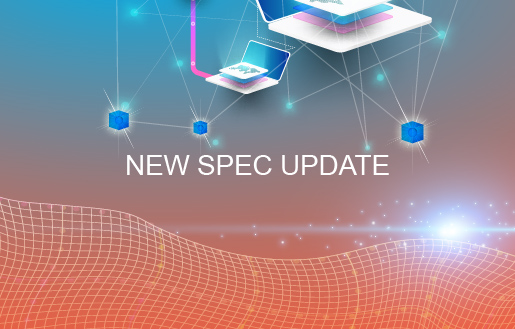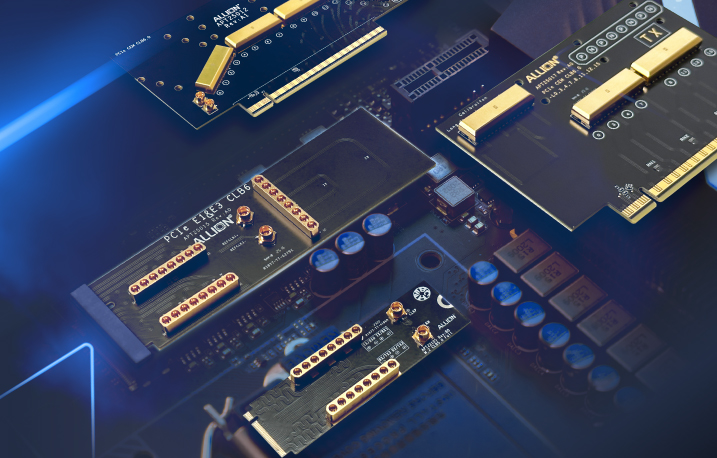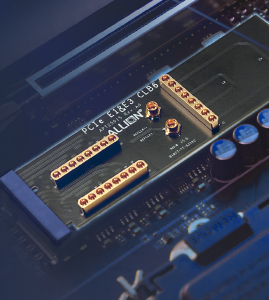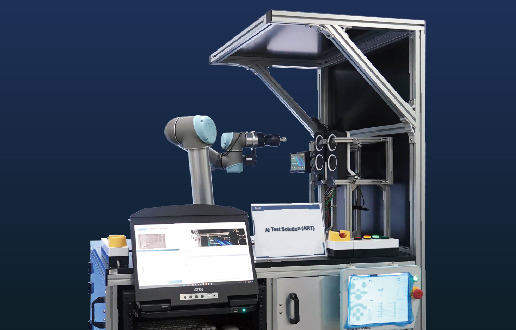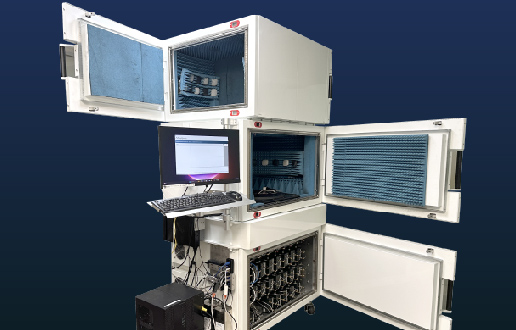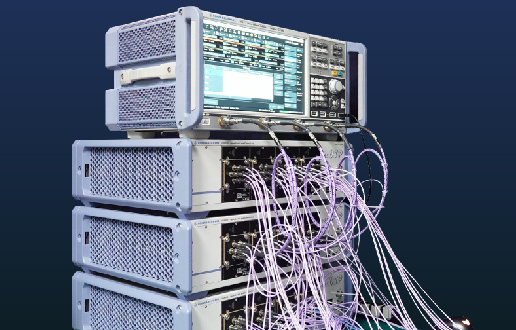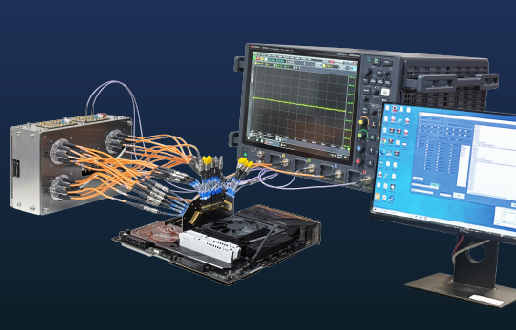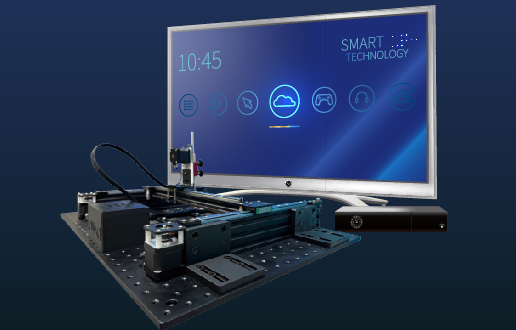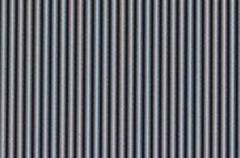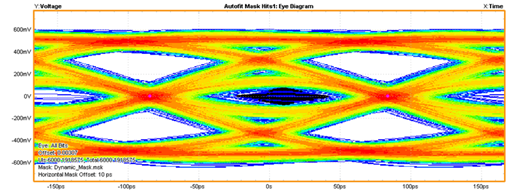Over time, HDMI has become a dominant multimedia interface that can be found in home theater equipment, personal computers, automotive electronics, and many mobile devices. Previous iterations of HDMI conquered the consumer electronics market by squeezing HD video and Hi-Fi audio signals through a single cable. In anticipation of market demand for Ultra-High Definition (UHD) displays, which offer four times the resolution of HD video, HDMI Forum published the new HDMI 2.0 specification in September 2013. This was followed by the publication of the corresponding HDMI Compliance Test Specification 2.0 in April 2014. These developments have enabled television manufacturers to begin launching UHD TVs in the 2nd half of 2014.
As the next iteration of HDMI technology, HDMI 2.0 offers significantly more bandwidth (~18 Gbps) to support UHD (2160p@50/60Hz) with 1080p/60 video resolution. HDMI 2.0 also supports up to 32 audio channels with a 1536 kHz audio sample frequency. Besides improving audio/video quality, HDMI 2.0 also enhances overall usability with full backwards-compatibility with earlier HDMI specifications, simultaneous transmission of dual-video streams, and multi-streaming audio to multiple users. On the more technical side, HDMI 2.0 offers CEC extensions for expanded command and control of consumer electronics devices, support for movie-theater-sized wide-angle 21:9 video aspect ratios, and dynamic synchronization of streaming media. Due to these revolutionary features, HDMI 2.0 can deliver exceptional multimedia entertainment experiences to consumers, both at home and on the go.
Table 1 : HDMI 2.0 versus HDMI 1.4
| 2.0 (Up to 18Gbps) | 1.4 (Up to 10.2Gbps) | |
| Video |
● Up to 4K@50/60 (4:4:4) ● 21:9 Aspect Ratio ● Dual viewing ● 3D OSD |
p to 4K@24/25/30 (4:4:4) ● 16:9 Aspect Ratio |
| Audio |
● Up to 32 audio channels ● Up to 1536kHz audio sample frequency ● Multi-stream audio |
● Up to 8 audio channels ● Up to 768kHz audio sample frequency |
| Smart Control |
● CEC extensions ● Dynamic Auto Lip-Sync |
● CEC ● Lip-Sync |
Since many of our customers have misgivings about HDMI 2.0 certification, Allion Labs, Inc. has taken the lead in assisting them. For instance, Allion recently worked with Toshiba and Pioneer to obtain HDMI 2.0 certification for their products. Taiwanese companies developing HDMI 2.0 compliant products have also benefitted from our recent hosting of the 2014 HDMI Plugfest in Taipei, which allowed manufactures to pre-test HDMI 2.0 products and thereby become familiar with the test procedures and constraints.
The 2014 HDMI Plugfest was attended by the President of HDMI Licensing, LLC., Mr. Steve Venuti and two representatives from Sony’s HDMI Authorized Test Laboratory (Mr. Kei Matsubayashi and Mr. Hiroyuki Funama). Many Taiwan based integrated circuit vendors and instrument manufacturers that are deploying HDMI 2.0 products were also in attendance. During the Plugfest, these companies could gain valuable experience and understanding related to the HDMI 2.0 certification process. The senior HDMI validation team provided on-the-spot Q&A and debugging services.
By hosting this event, we learned that the majority of HDMI 2.0 products in the development pipeline were sink devices rather than source devices. In general, most HDMI 2.0 source device vendors were from overseas. We also found that only IC components were 6 Gbps compatible and most of these products were in the research and development stage. Next year, some HDMI 2.0 source products should begin to emerge on the market.
The following paragraphs describe some typical product issues that we observed during the HDMI 2.0 Plugfest:
| Length Discrepancy | Equal Length |
|
|
|
2. HDMI 2.0 Reception IC testing showed a 112 ps intra-pair signal delay, which can cause signal noise and a loss of video. HDMI 2.0 Transmission IC testing also yielded disappointing results with severe problems as observed in the Ultra-Pair Skew and Eye pattern below. These results suggest that manufacturers still have many HDMI 2.0 design challenges ahead.
Title: 6G Eye Diagram
During the Plugfest, Allion Cable and Connector Testing engineers provided HDMI cables from various companies for cable testing. By analyzing the results, we conclude that the different cables had a significant effect on the test results, especially with bandwidth and data transfer performance. This result emphasizes the importance of complete interoperability testing to make sure the end product does not encounter pairing failure or signal delays due to poor cabling.
“With the various benefits of HDMI 2.0, the greatest technological challenge of all will also be approached in the field of certification testing, particular in 18 Gbps throughput and 4K resolution, so that the reliability and stability of related functions and performance become extremely important,” said Kei Matsubayashi, the representative of SONY HDMI ATC.
As a Sony ATC for HDMI technology, Allion provides comprehensive HDMI 2.0/1.4b compliance and validation services for all four HDMI product types (sink, source, cable and repeater). Our quick and convenient test services enable customers to assess, improve, and validate their products. As a comprehensive certification provider, we also support MHL and HDCP test services for a variety of transmission interfaces. Besides validation testing, Allion also offers device interoperability and user experience analysis to achieve higher levels of product quality and customer satisfaction.
For further information about HDMI 2.0, please refer to the official website:http://www.hdmi.org/manufacturer/hdmi_2_0/index.aspx. If your company is seeking a reliable test services provider and quality partner, please go to http://www.allion.com.tw/hdmi.html or email us directly:service@allion.com.















